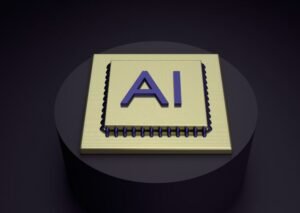AI Applications for Healthcare
With the rapid advancement of artificial intelligence (AI) technology, industries across the board are finding ways to integrate AI into their operations. One industry that stands to benefit greatly from AI is healthcare. From diagnosis to treatment, AI applications have the potential to revolutionize the way healthcare is delivered, making it faster, more accurate, and more personalized.
Key Takeaways
- AI has numerous applications in healthcare, greatly improving diagnostic accuracy, patient monitoring, and treatment planning.
- Machine learning algorithms enable AI systems to learn from large datasets, allowing for more accurate predictions and personalized healthcare.
- The use of AI in healthcare can help alleviate the workload of healthcare providers, reducing errors and improving overall efficiency.
One of the primary applications of AI in healthcare is in diagnosis. AI systems can analyze vast amounts of medical data, including patient records, medical images, and research papers, to assist healthcare providers in making accurate diagnoses. Machine learning algorithms can identify patterns and anomalies that humans might miss, increasing diagnostic accuracy. *This technology has the potential to reduce misdiagnosis rates, ultimately saving lives.*
Another area where AI is making significant advancements is patient monitoring. AI-powered devices can continuously collect and analyze patient data, such as heart rate, blood pressure, and even sleep patterns. This real-time monitoring allows for early detection of deteriorating health conditions, enabling healthcare providers to intervene sooner. By providing proactive care, AI systems have the potential to improve patient outcomes and reduce hospital readmissions.
AI Applications in Healthcare
| Application | Benefits |
|---|---|
| Robotic surgery | – Increased precision and accuracy – Reduced invasiveness and faster recovery times |
| Personalized medicine | – Targeted treatment plans based on patient-specific data – Possible identification of new drug targets or treatment strategies |
| Drug discovery | – Accelerated identification of potential drug candidates – Better understanding of disease mechanisms |
AI is also proving to be an invaluable tool in treatment planning. By analyzing patient data and considering various factors like medical history, genetic information, and treatment responses from similar patients, AI systems can assist in developing personalized treatment plans. This tailored approach can lead to more effective and efficient treatments, minimizing side effects and optimizing patient outcomes.
AI in healthcare not only benefits patients but also healthcare providers. By automating routine tasks like data entry and documentation, AI systems can free up valuable time for healthcare professionals to focus on patient care. This technology can also help to standardize care practices, reducing errors and variability in treatment. Additionally, AI-powered chatbots and virtual assistants can provide patients with quick access to medical information and guidance, improving overall healthcare accessibility.
Advantages and Limitations of AI in Healthcare
| Advantages | Limitations |
|---|---|
| – Improved diagnostic accuracy and patient outcomes – Enhanced efficiency and reduced workload for healthcare providers – Personalized treatment plans based on individual patient data |
– Ethical considerations around privacy and data security – Lack of transparency in AI decision-making – Dependence on high-quality data and the potential for bias |
In summary, AI applications in healthcare have the potential to revolutionize the industry by improving diagnostic accuracy, optimizing treatment planning, and enhancing patient monitoring. While there are limitations to be addressed, the benefits of AI in healthcare are undeniable. As AI technology continues to advance, we can expect to see further integration of AI systems in healthcare, leading to improved patient outcomes and more personalized care.

Common Misconceptions
Misconception: AI will replace doctors
One common misconception about AI applications in healthcare is that they will replace doctors entirely. However, this is not the case. AI is meant to assist doctors and healthcare professionals in making more accurate diagnoses and treatment plans, but it cannot replace the expertise and human touch that doctors provide.
- AI can help doctors analyze large amounts of patient data to identify patterns and trends.
- AI can provide recommendations for treatment options based on evidence-based guidelines.
- AI can automate repetitive tasks, allowing doctors to focus on more complex cases.
Misconception: AI diagnoses are always correct
Another common misconception is that AI diagnoses are always correct. While AI can support doctors in making diagnoses, it is not infallible. AI algorithms are developed based on existing data, and if the data is biased or incomplete, the diagnoses may be flawed. It is crucial for healthcare professionals to validate and cross-check AI-generated diagnoses.
- AI can provide an additional perspective on diagnoses, but it should not be the sole source of information.
- Doctors should critically evaluate AI-generated diagnoses to ensure accuracy.
- AI algorithms require regular updates and improvement to maintain relevance and accuracy.
Misconception: AI applications pose a threat to patient privacy
Many people fear that AI applications in healthcare pose a significant threat to patient privacy. However, healthcare providers and technology companies are bound by strict regulations and ethical guidelines to protect patient data. These measures include data encryption, limiting access to authorized personnel, and anonymizing data for analysis.
- Healthcare providers must adhere to privacy regulations, such as HIPAA in the United States.
- AI algorithms can be designed to work with anonymized patient data to preserve privacy.
- Technology companies must implement robust security measures to prevent data breaches.
Misconception: AI will reduce the need for human interaction in healthcare
Some individuals worry that AI applications will reduce the need for human interaction in healthcare, leading to a loss of empathy and personal touch. While AI can automate certain tasks, such as scheduling appointments or reminding patients to take medication, the importance of human interaction in healthcare cannot be overstated.
- Patients need emotional support and compassion that only human healthcare professionals can provide.
- AI can free up time for doctors to spend more quality time with patients.
- Patient-doctor relationships are essential for holistic and personalized care.
Misconception: AI applications in healthcare are not accessible to everyone
Some believe that AI applications in healthcare are only available to a privileged few and are not accessible to everyone. However, as AI technology advances, its integration into healthcare systems becomes more widespread, and efforts are made to ensure equal access to AI-powered healthcare solutions.
- Strategies can be implemented to increase access, such as telemedicine platforms that utilize AI technology.
- AI-based healthcare solutions can be adapted for low-resource settings to reach underserved populations.
- Collaboration with governments and non-profit organizations can help make AI applications more accessible and affordable.

1. Number of AI Applications in Healthcare
According to a recent study, the number of AI applications used in healthcare has been rapidly increasing over the past decade. This table provides a breakdown of the different types of AI applications currently being utilized in the healthcare industry.
| AI Application | Number |
|---|---|
| Medical imaging analysis | 120 |
| Drug discovery and development | 87 |
| Patient data analytics | 68 |
| Virtual nursing assistants | 52 |
| Disease diagnosis | 49 |
| Robot-assisted surgery | 37 |
| Healthcare management systems | 25 |
| Personalized medicine | 18 |
| Telemedicine | 15 |
| Genome sequencing | 9 |
2. Benefits of AI Applications in Healthcare
AI applications in healthcare offer numerous advantages, as demonstrated in this table. These benefits contribute to improved patient care, precision in diagnosis, and enhanced overall efficiency of healthcare systems.
| Benefit | Explanation |
|---|---|
| Improved diagnostic accuracy | AI algorithms provide precise and fast analysis, reducing human error in diagnostics. |
| Enhanced patient monitoring | Remote monitoring devices equipped with AI technology enable continuous patient monitoring, enabling proactive care. |
| Efficient utilization of resources | AI systems optimize resource allocation, ensuring timely access to medical services and reducing waiting times. |
| Personalized treatment plans | AI algorithms analyze patient data to provide tailored treatment recommendations and medication options. |
| Automation of administrative tasks | AI-powered systems automate administrative tasks, freeing up healthcare professionals to focus on patient care. |
3. AI Applications in Medical Imaging Analysis
This table highlights the various AI applications used in the domain of medical imaging analysis. AI enhances the interpretation of medical images and aids in detecting anomalies or diseases.
| Medical Imaging Analysis | AI Application |
|---|---|
| Magnetic Resonance Imaging (MRI) | AI-based classification of brain tumors |
| Computed Tomography (CT) scans | AI-powered lung nodule detection |
| Ultrasound | AI algorithms for fetal anomaly detection |
| X-ray images | AI-based fracture detection |
| Mammography | AI-assisted breast cancer diagnosis |
4. AI in Drug Discovery and Development
AI plays a significant role in drug discovery and development, speeding up the process and improving success rates. This table illustrates AI applications specific to this field.
| Drug Discovery and Development | AI Application |
|---|---|
| Compound screening | AI algorithms to predict drug efficacy |
| Pharmacovigilance | AI for adverse drug reaction detection |
| Virtual drug trials | AI-powered simulations for testing drug efficacy |
| Machine learning-based drug design | AI algorithms for designing new compounds |
5. Benefits of AI in Patient Data Analytics
AI facilitates patient data analytics, leading to personalized healthcare plans based on an individual’s medical history, genetics, and lifestyle. The following table outlines the benefits of AI in this domain.
| Patient Data Analytics | Benefit |
|---|---|
| Predictive analytics | Early prediction of disease progression and patient outcomes |
| Risk assessment | Identification of patients at high risk for developing certain conditions |
| Treatment optimization | Personalized treatment plans tailored to patients’ unique needs |
| Longitudinal analysis | Tracking and analysis of patient data over time for comprehensive insights |
6. Applications of AI in Virtual Nursing Assistants
Virtual nursing assistants leverage AI technology to provide support to healthcare providers and patients. Explore the various applications of AI in virtual nursing assistants in the table below.
| Virtual Nursing Assistants | AI Application |
|---|---|
| Medication reminders | AI-powered prompts to ensure adherence to medication schedules |
| Symptom monitoring | AI chatbots for symptom tracking and analysis |
| Health education | AI-guided information and health tips for patients |
| Appointment scheduling | AI-enabled systems for efficient scheduling and reminders |
| Emotional support | AI companions offering empathetic interactions for emotional well-being |
7. AI’s Role in Disease Diagnosis
AI plays a vital role in disease diagnosis by analyzing patient symptoms, medical history, test results, and other factors. Discover various diseases that can be accurately diagnosed using AI in the following table.
| Disease | AI Diagnosis |
|---|---|
| Diabetes | AI algorithms for predicting diabetes onset and managing blood sugar levels |
| Cancer | AI systems for early cancer detection and classification |
| Alzheimer’s disease | AI models to identify memory deterioration patterns and predict disease progression |
| Heart disease | AI algorithms for diagnosing cardiac conditions and predicting cardiovascular risks |
8. Applications of AI in Robot-Assisted Surgery
Robot-assisted surgery involves the use of AI-powered robots to enhance surgical precision and minimize invasiveness. Here are various surgical procedures and the corresponding AI applications in this rapidly advancing field.
| Surgical Procedure | AI Application |
|---|---|
| Prostate surgery | AI-guided robotic systems for precise removal of cancerous tissues |
| Cardiac surgery | AI-assisted robots with real-time feedback for intricate heart procedures |
| Orthopedic surgery | AI-enhanced robotic systems for joint replacements with increased accuracy |
| Gynecological surgery | AI robots for minimally invasive procedures with shorter recovery times |
9. AI Solutions for Healthcare Management Systems
AI solutions assist in managing and improving healthcare systems to streamline processes, reduce costs, and enhance patient satisfaction. The following table outlines various applications of AI in healthcare management systems.
| Healthcare Management Systems | AI Application |
|---|---|
| Resource allocation | AI algorithms for optimizing bed and staff assignments to match demand |
| Patient flow management | Real-time AI analysis to expedite patient admissions and discharges |
| Preventive maintenance | AI systems to continuously monitor healthcare equipment and predict maintenance needs |
| Inventory management | AI-powered systems for efficient tracking and procurement of medical supplies |
10. Impact of AI on Personalized Medicine
AI is revolutionizing personalized medicine by analyzing vast amounts of patient data to tailor diagnoses and treatments to individual needs. The following table highlights how AI applications contribute to the advancement of personalized medicine.
| Personalized Medicine | AI Contribution |
|---|---|
| Genetic profiling | AI algorithms analyze genetic data for personalized disease risk assessments |
| Drug selection | AI systems predict optimal medications based on patient-specific characteristics |
| Therapeutic monitoring | AI technology assists in monitoring treatment responses and making necessary adjustments |
| Lifestyle recommendations | AI-powered platforms provide personalized lifestyle modifications for improved health outcomes |
In conclusion, AI applications in healthcare are driving significant advancements, with the number and diversity of applications continuously expanding. From medical imaging analysis to personalized medicine, AI offers numerous benefits, including improved diagnostic accuracy, enhanced patient monitoring, and optimized resource utilization. AI is transforming the way healthcare providers diagnose and treat diseases, manage healthcare systems, and provide personalized care to patients. As technology progresses, AI will continue to play a pivotal role in revolutionizing the healthcare industry, ultimately improving patient outcomes and overall healthcare effectiveness.
Frequently Asked Questions
Can AI be used in healthcare?
Can AI technology improve healthcare outcomes?
Yes, AI has the potential to greatly enhance healthcare outcomes by enabling more accurate diagnoses, identifying potential treatment options, and assisting in personalized patient care.
What are some examples of AI applications in healthcare?
How is AI used in medical imaging?
AI can assist radiologists in analyzing medical images such as CT scans or X-rays, helping to identify abnormalities or potential diseases.
Does AI play a role in drug discovery?
Yes, AI is being used to expedite the drug discovery process by analyzing massive amounts of data and identifying potential drug candidates.
What are the benefits of using AI in healthcare?
How does AI help in improving patient care?
AI can assist healthcare providers in delivering personalized care plans, predicting patient outcomes, and identifying potential risks or complications.
Can AI help reduce medical errors?
Yes, AI can help minimize medical errors by providing real-time insights, detecting anomalies, and alerting healthcare professionals to potential issues.
What are the challenges of implementing AI in healthcare?
Are there concerns about patient privacy and data security in using AI?
Yes, there are concerns regarding the privacy and security of patient data when utilizing AI in healthcare. Steps must be taken to ensure proper data protection measures are in place.
Are there any ethical considerations with AI in healthcare?
Yes, ethical considerations arise with AI in healthcare, such as ensuring unbiased algorithms, maintaining transparency, and addressing potential job displacement of healthcare professionals.
How can AI be integrated into existing healthcare systems?
Is it difficult to implement AI technologies in healthcare organizations?
Implementing AI in healthcare organizations can be complex, requiring collaboration between healthcare professionals, IT teams, and AI experts. However, with proper planning and support, it can be achieved successfully.
What are the potential cost benefits of AI in healthcare?
AI has the potential to reduce healthcare costs by streamlining processes, improving efficiency, and enabling more accurate diagnoses, leading to better resource allocation and optimized utilization.
How is AI regulated in the healthcare industry?
Are there regulations in place to ensure safe and effective use of AI in healthcare?
Regulatory bodies are establishing guidelines and frameworks to ensure the safe and effective use of AI in healthcare, considering factors such as data privacy, transparency, and accountability.





